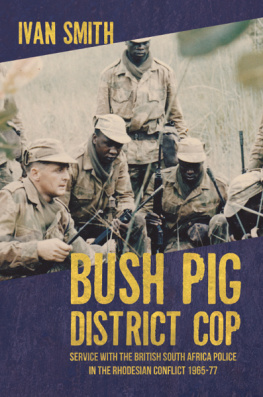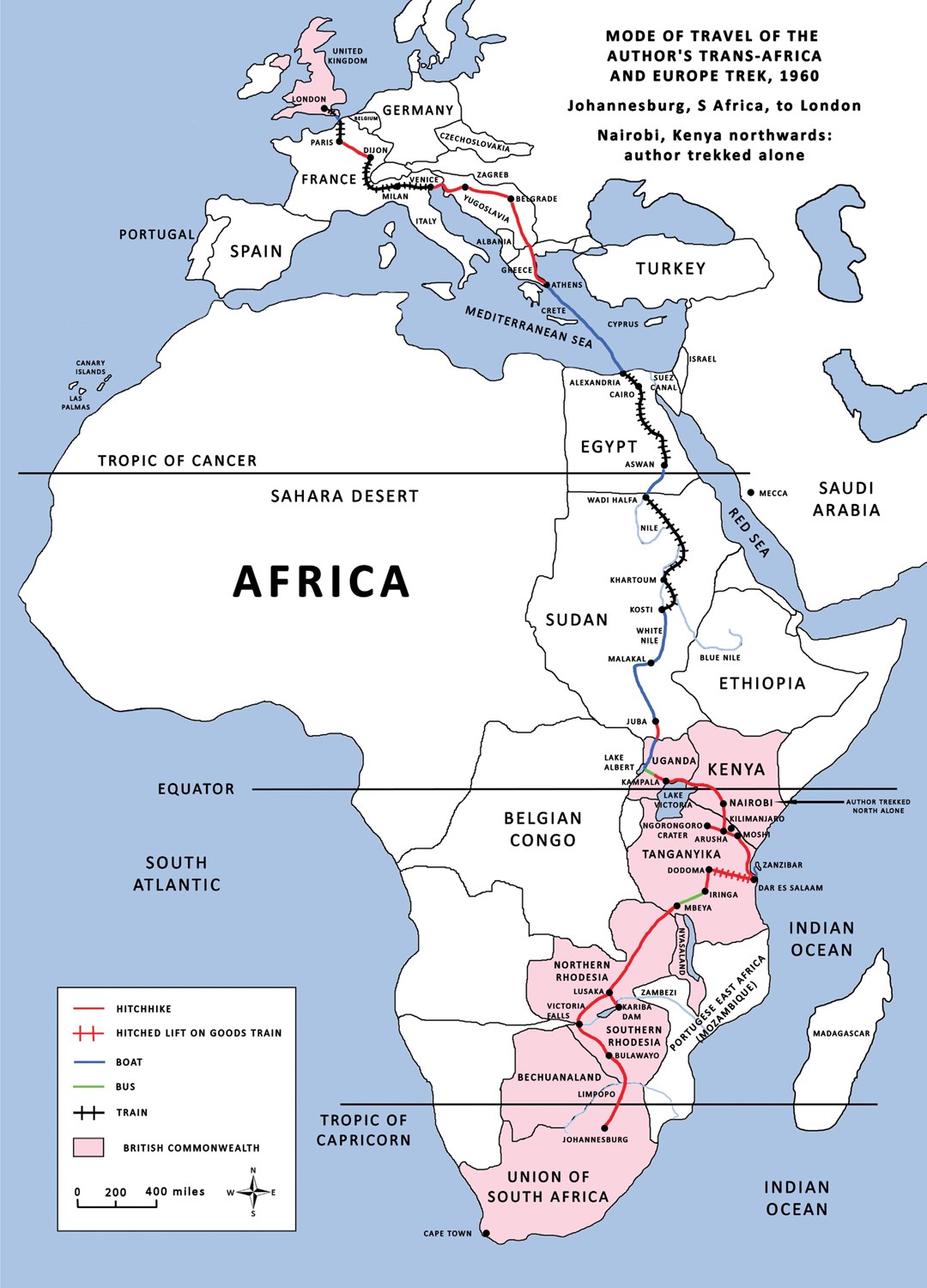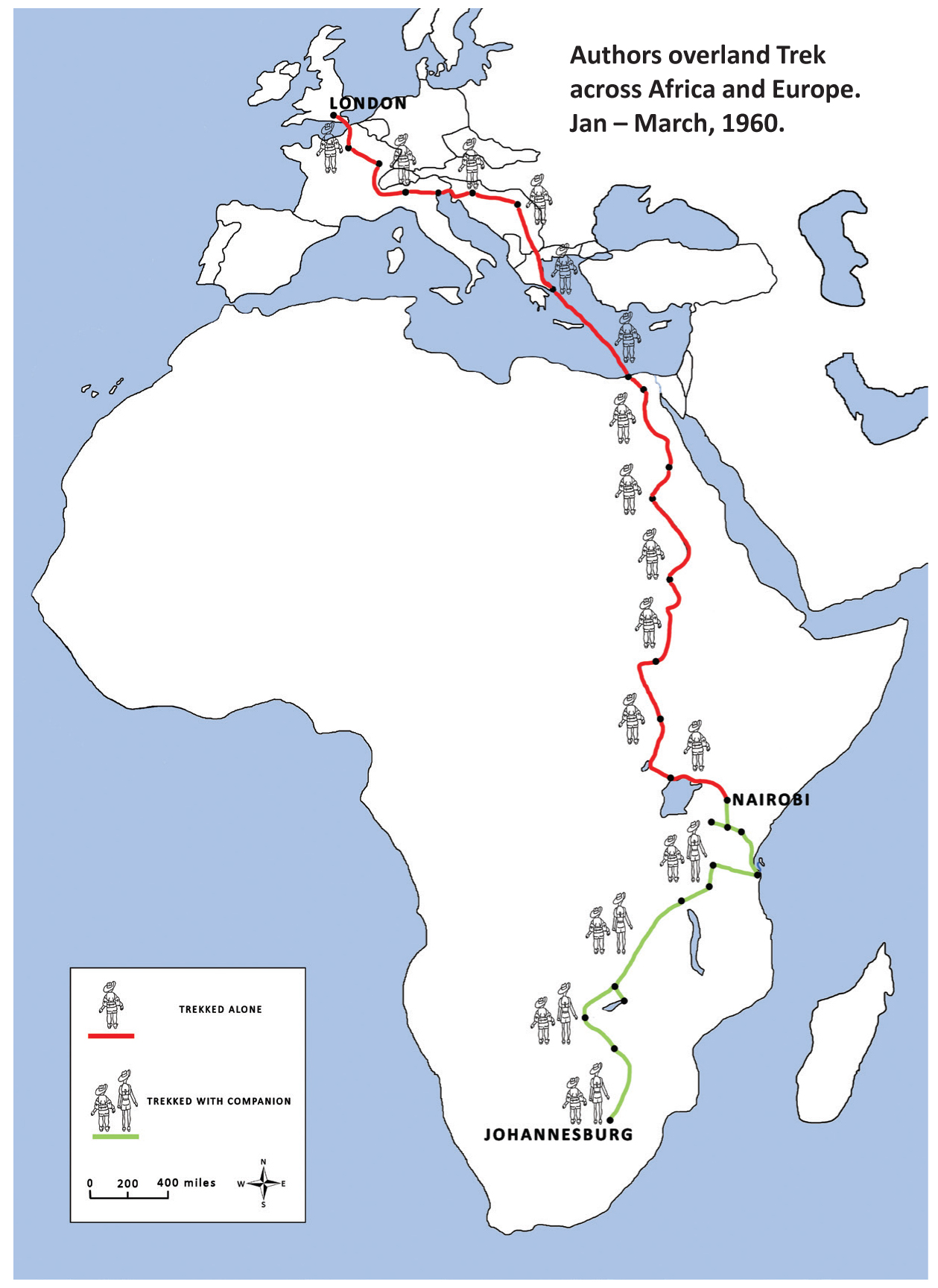I NTRODUCTION (V OL . 3)
This book (Volume3) and the other two books in my trilogy are my impressions of places and people in Africa. These are on the theme of five years of escape and serendipity in Africa in the 1950s. This was before the old order of Empire had been seriously changed.
I was a young British immigrant working for three major southern African employers and studying at a South African university. The climax and conclusion of this experience was an overland journey from Johannesburg to London across Africa and Europe in 1960 (Vol. 3), hitchhiking where possible.
I was inspired to make my African adventures by studying maps and public library books in Britain. I made my own armchair journeys into distant lands. In these fascinating regions Africa occupied a special place. This was because of the seemingly undisturbed uniqueness of its life: human, animal and vegetable.
After completing the narrative of my adventures on the overland African and Europe expedition in this book (Volume 3), I follow with an account of my hitchhike to Nyasaland (now Malawi) and Northern Rhodesia (now Zambia). The Nyasaland and N. Rhodesia Trek was undertaken in an entitled holiday from my Johannesburg dynamite factory employment. As this three week break included walking among Africas most dangerous wild animals it ranks among my most exciting African experiences. Since it involves trekking through an area beyond Southern Rhodesia and South Africa, where my adventures are described in Volume 1 and 2 respectively, it is related to my trans-Africa trek. It therefore qualifies to be included in this book about my African overland journey.
My Nyasaland and Northern Rhodesia explorations are placed at the back of this book so as not to distract from the main account of my crossing of Africa and Europe. This is in spite of the fact that the former mentioned expedition occurred a few months before my Trans-Africa and Europe journey. However, this book is mainly about my eight thousand mile, three month, overland expedition, across Africa and Europe to London.
I started hitchhiking early in 1960 with David, my Jewish friend. As Dave was unfit for high altitude, I climbed deserted Kilimanjaro alone, except for a black guide and two porters. It took five days to climb and descend, involving sleeping in huts.
Dave and I trekked into the giant Ngorongoro Crater where lions and Masai warriors challenged us.
In Nairobi, Kenya, Dave refused to accompany me further north towards the Moslem lands. This was because of the danger of a possible assault on a Jew! He got a vessel from the Kenyan coast to Europe with tough French Foreign Legion soldiers.
Not deterred I continued my trans-Africa trek alone. A Kikuyu tribesman, a recent participant in the savage Mau Mau insurrection, drove me through Kenya! This was followed by a Sikh driving me to his home in Uganda, to find it burgled!
I traversed the Arab governed Sudan on the back of a lorry and a Nile paddle steamer, during a civil war.
The military uniformed Egyptian warden of Alexandria Youth Hostel, an Arab, tried to seize my passport for dating an Egyptian Moslem girl!
I was entertained on exiled King Farouks yacht by an Egyptian officer who described the Kings erotic antics!
At Alexandrias quayside I took my leave of Africa on a Greek liner as a deck passenger, one who sleeps on the open deck. The liner was bound for Greece across the Mediterranean Sea.
From Athens I hitchhiked across Europe. This was via communist Yugoslavia where I was questioned by police for loitering on a Belgrade street!
Italians repeatedly hurled what I believed to be insults through their car windows when I tried to thumb lifts from Venice onwards. These utterances were punctuated by the word Mussolini as the car drivers sped past me.
Temporarily giving up on hitch-hiking I got the train to Dijon in France.
From Dijon I hitchhiked to Paris with two beautiful, French girls.
Crossing the Channel by ferry, long before the Channel tunnel was built, I returned to my London family.
Shortly after arriving home I failed the British National Service medical.

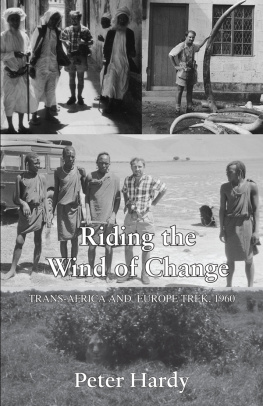

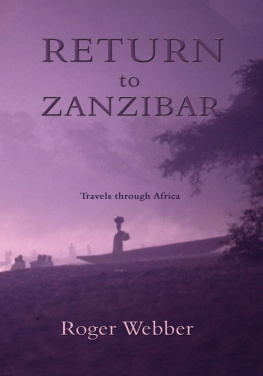
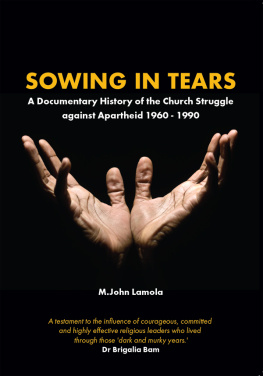
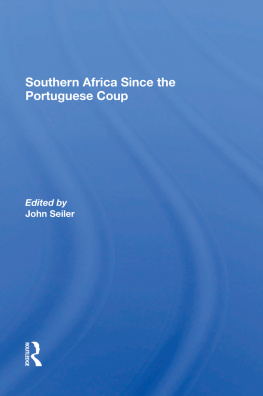
![P.P.K.Walther [P.P.K.Walther] - Rhodesia’s Hangover](/uploads/posts/book/267900/thumbs/p-p-k-walther-p-p-k-walther-rhodesia-s.jpg)

